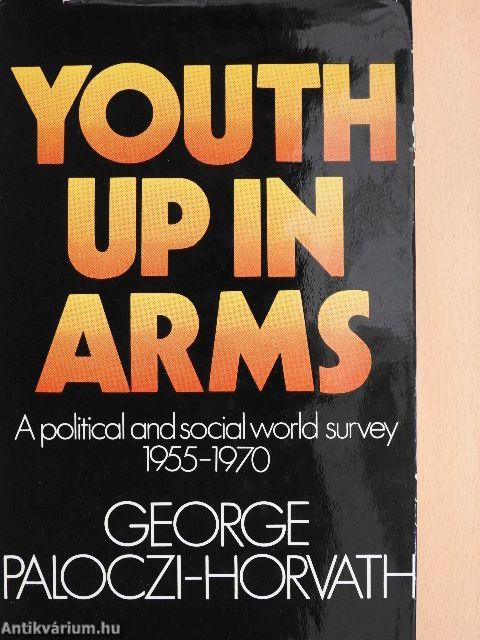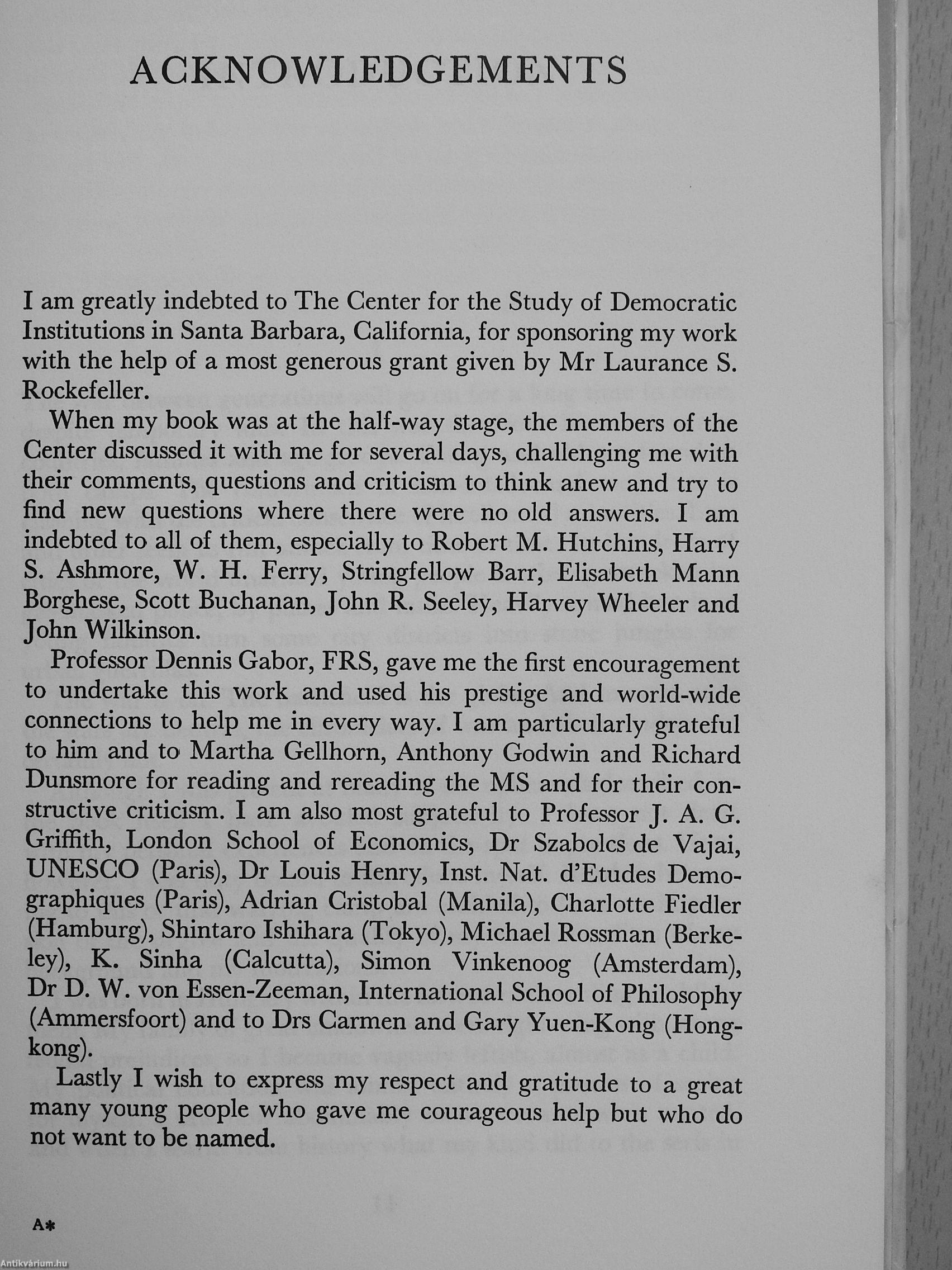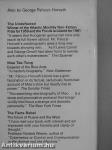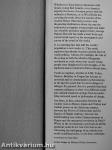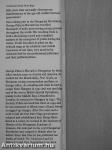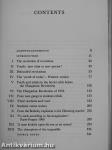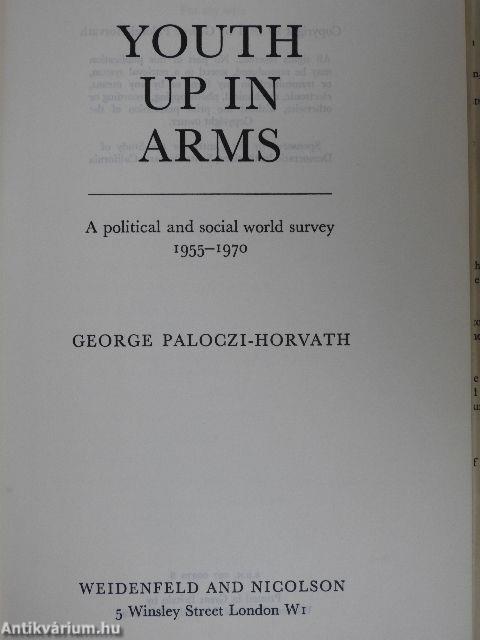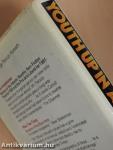1.067.104
kiadvánnyal nyújtjuk Magyarország legnagyobb antikvár könyv-kínálatát

VISSZA
A TETEJÉRE
JAVASLATOKÉszre-
vételek
Youth Up in Arms
A political and social world survey 1955-1970
| Kiadó: | Weidenfeld and Nicolson |
|---|---|
| Kiadás helye: | London |
| Kiadás éve: | |
| Kötés típusa: | Varrott keménykötés |
| Oldalszám: | 349 oldal |
| Sorozatcím: | |
| Kötetszám: | |
| Nyelv: | Angol |
| Méret: | 22 cm x 15 cm |
| ISBN: | |
naponta értesítjük a beérkező friss
kiadványokról
naponta értesítjük a beérkező friss
kiadványokról
Előszó
TovábbFülszöveg
Also by George Paloczi-Horvath
The Undefeated
Winner of the Atlantic Monthly Non-Fiction Prize for 1959 and the Prix de la Liberté for 1961 "It seems that Hungarian genius can now only reach its full flower abroad. Mr. Paloczi-Horvath's autobiography goes a long way towards showing why As if Lewis Carroll and George Orwell had taken turns to rewrite each other's masterpieces." The Observer
Mao Tse-Tung
Emperor of the Blue Ants
"A masterly biography." New Statesman
"Mr. Paloczi-Horvath's book has a grim fascination in its factual, sedulously footnoted account of Mao's slow but deadly rise to power." The Sunday Times "This searching new biography of Mao is a sharp and provocative portrayal that brings vividly into'focus a strange and dramatic personality." The New York Times
The Facts Rebel
The future of Russia and the West
"I have read your book with interest and am
impressed with your honesty and clarity of
thought."
Professor Norbert Wiener, author of "Cybernetics... Tovább
Fülszöveg
Also by George Paloczi-Horvath
The Undefeated
Winner of the Atlantic Monthly Non-Fiction Prize for 1959 and the Prix de la Liberté for 1961 "It seems that Hungarian genius can now only reach its full flower abroad. Mr. Paloczi-Horvath's autobiography goes a long way towards showing why As if Lewis Carroll and George Orwell had taken turns to rewrite each other's masterpieces." The Observer
Mao Tse-Tung
Emperor of the Blue Ants
"A masterly biography." New Statesman
"Mr. Paloczi-Horvath's book has a grim fascination in its factual, sedulously footnoted account of Mao's slow but deadly rise to power." The Sunday Times "This searching new biography of Mao is a sharp and provocative portrayal that brings vividly into'focus a strange and dramatic personality." The New York Times
The Facts Rebel
The future of Russia and the West
"I have read your book with interest and am
impressed with your honesty and clarity of
thought."
Professor Norbert Wiener, author of "Cybernetics or Control and Communication in the Animal and the Machine. "
Whether in China deep in discussion with fanatic young Red Guards, or in America arguing the issues of student power with the militants at Berkeley, or in West Berlin discovering the truth about the murder of the student Benno Ohnesberg (a story with disquieting implications about the way the authorities act against young people and make use of public prejudice against them), George Paloczi-Horváth has made a most lively and controversial report on his investigation and survey of the youth of the world.
It is a startling fact that half the world's population is now under 21. This youth explosion has already become a potent force in world politics ; witness, for example, the role of the young in both the abortive Hungarian revolution in 1956, when over io,ooo young people were slaughtered in the struggle, or the explosive near-revolution in Paris a decade later.
Youth in eruption, whether at LSE, Tokyo, Mexico, Berkeley or Prague has become so universal and so commonplace a phenomenon in the last five years that we are in danger of taking it for granted. But it is possible that their common militancy in their very different social and cultural situations springs from an underlying universal mood or philosophy of change.
Are there, in fact, coimections between the student riots in Mexico, Japan and Turkey and student power on the American campus, between the Provos of Amsterdam and the hippies of Haight Ashbury, between the heartbreaking non-violent demonstrations in Prague and the attempted revolution in Paris? Where in the revolutionary spectrum do all the apolitical youth fit in? Can it be that we are witnessing the birthpangs of an entirely new social or political order, or are these outbreaks (continued on back flap) Jacket design by Holmes Kitley Associates
(continued from front flap)
little more than unusually obstreperous manifestations of the age-old conflict between generations?
Since taking part in the Hungarian Revolution, George Paloczi-Horvath has travelled thousands of miles interviewing young activists throughout the world. His resulting book is both a fascinating record and a detailed analysis of the emergence of youth during the sixties. Youth has taken its place on the political stage as the idealistic and critical conscience of our time, very much to be reckoned with by the professional politicians and their political parties.
George Paloczi-Horvath is Hungarian by birth. After student years in Austria and America, he worked for the liberal daily. Pesti Naplo, as European roving correspondent and later as foreign editor. As a leading anti-Nazi he had to escape from Hungary in 1941 and was until the end of the war in British Special Operations, mainly in the Middle East. Demobbed in London, he returned to Hungary in 1947. The Security Police arrested him there in 1949 and he was sentenced to fifteen years of hard labour on rigged-up charges. After five years and a week in jail the first Imre Nagy government released and rehabilitated him. Being blacklisted as a writer, he worked in the Institute of History of the Hungarian Academy of Sciences. He took part in the 1956 Hungarian Revolution and escaped to Britain after its defeat. Since that time he has published ten books, of which The Undefeated and his Khruschev and Mao biographies have been published in more than ten countries. Vissza
Témakörök
- Szociológia > Társadalmi csoportok > Életkor szerint > Fiatalok
- Szociológia > Politikai szociológia
- Idegennyelv > Idegennyelvű könyvek > Angol > Művelődéstörténet
- Idegennyelv > Idegennyelvű könyvek > Angol > Szociológia > Társadalmi csoportok > Életkor szerint > Fiatalok
- Idegennyelv > Idegennyelvű könyvek > Angol > Szociológia > Politikai szociológia
- Idegennyelv > Idegennyelvű könyvek > Angol > Történelem > Egyéb
- Művelődéstörténet > Eszmetörténet > Történelem > Politika
- Szociológia > Módszertan > Kutatások
- Szociológia > Szakszociológiák
- Szociológia > Tanulmányok, esszék
- Idegennyelv > Idegennyelvű könyvek > Angol > Szociológia > Szakszociológiák
- Idegennyelv > Idegennyelvű könyvek > Angol > Szociológia > Tanulmányok, esszék
- Idegennyelv > Idegennyelvű könyvek > Angol > Szociológia > Módszertan > Kutatások
- Történelem > Idegennyelvű > Angol
- Történelem > Legújabb kor > A hidegháború kora (1946-1991)
- Történelem > Politika > Politológia



